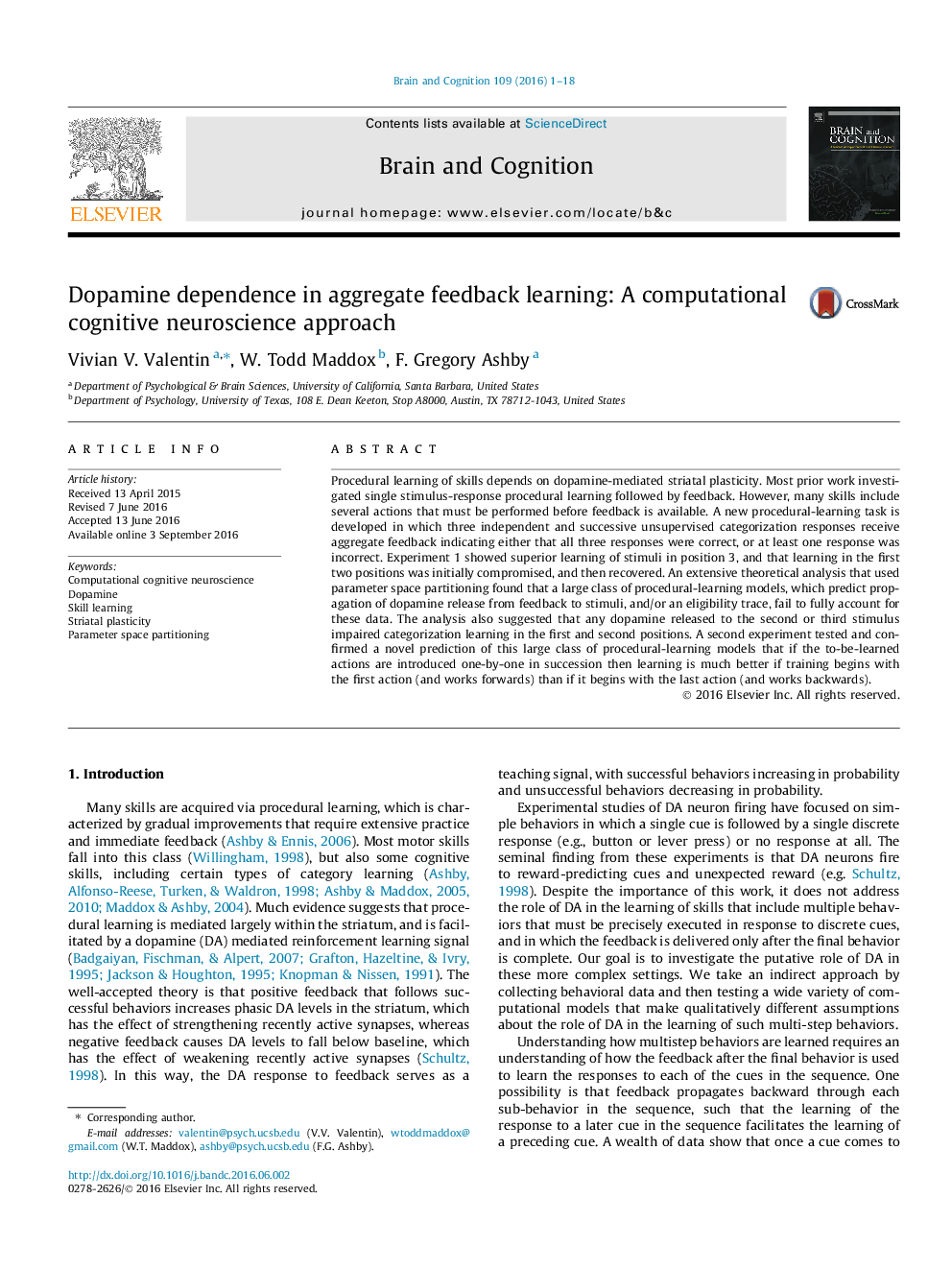| کد مقاله | کد نشریه | سال انتشار | مقاله انگلیسی | نسخه تمام متن |
|---|---|---|---|---|
| 5041160 | 1473962 | 2016 | 18 صفحه PDF | دانلود رایگان |
- Developed a task with 3 independent categorization responses and aggregate feedback.
- Stimuli closer to the feedback were learned faster than farther ones.
- Theoretical analysis showed that procedural-learning models fail to capture the data.
- Also, dopamine released to the stimuli must impair learning in the early positions.
- A prediction of optimal presentation order to train sequences was tested & confirmed.
Procedural learning of skills depends on dopamine-mediated striatal plasticity. Most prior work investigated single stimulus-response procedural learning followed by feedback. However, many skills include several actions that must be performed before feedback is available. A new procedural-learning task is developed in which three independent and successive unsupervised categorization responses receive aggregate feedback indicating either that all three responses were correct, or at least one response was incorrect. Experiment 1 showed superior learning of stimuli in position 3, and that learning in the first two positions was initially compromised, and then recovered. An extensive theoretical analysis that used parameter space partitioning found that a large class of procedural-learning models, which predict propagation of dopamine release from feedback to stimuli, and/or an eligibility trace, fail to fully account for these data. The analysis also suggested that any dopamine released to the second or third stimulus impaired categorization learning in the first and second positions. A second experiment tested and confirmed a novel prediction of this large class of procedural-learning models that if the to-be-learned actions are introduced one-by-one in succession then learning is much better if training begins with the first action (and works forwards) than if it begins with the last action (and works backwards).
Journal: Brain and Cognition - Volume 109, November 2016, Pages 1-18
